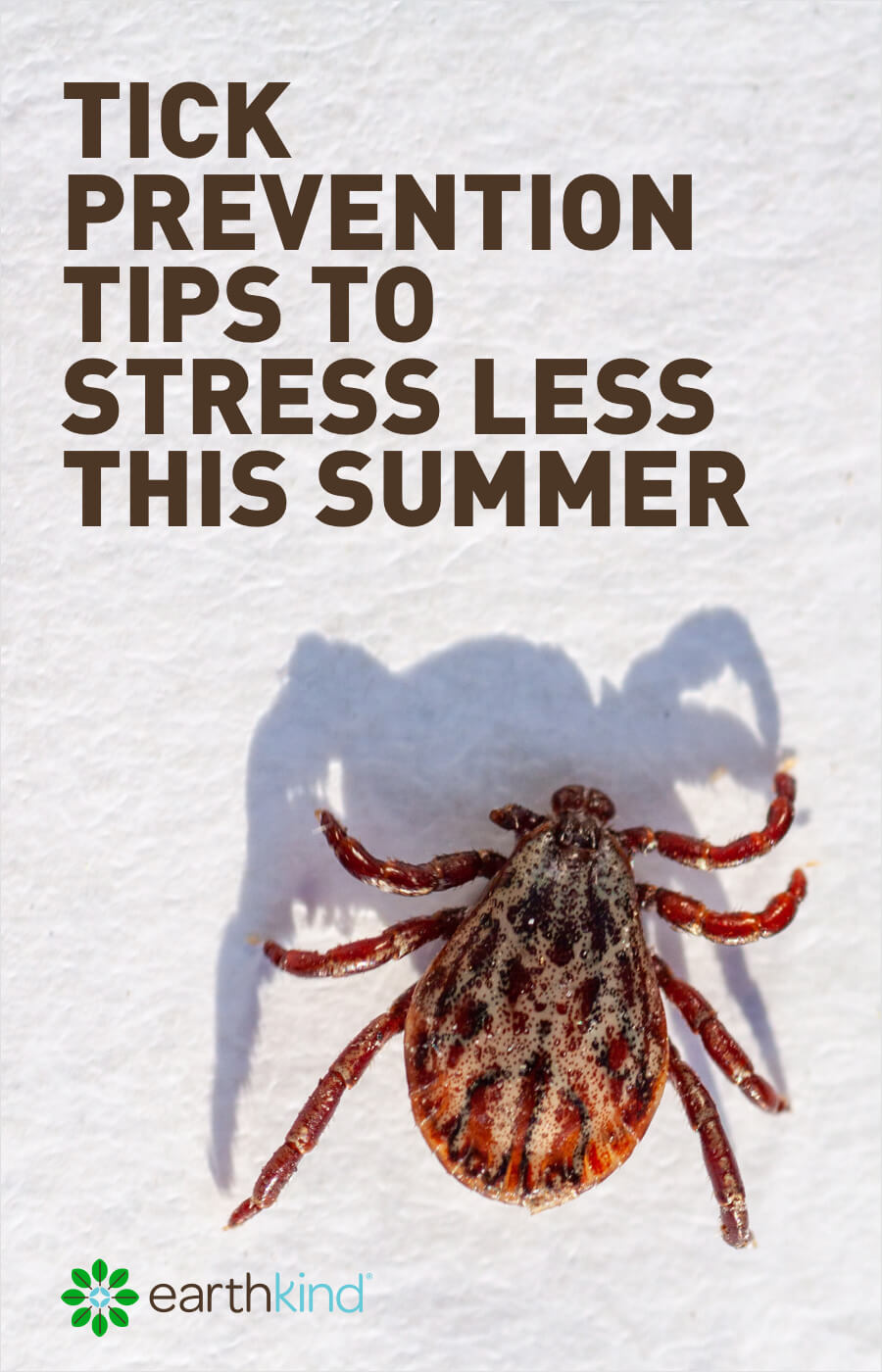 Tick related illnesses are on the rise. Changing weather patterns, urbanization, and robust wildlife populations all contribute to increased exposure to disease carrying ticks for people. But we can’t lock ourselves inside and avoid nature in the name of tick prevention!
Tick related illnesses are on the rise. Changing weather patterns, urbanization, and robust wildlife populations all contribute to increased exposure to disease carrying ticks for people. But we can’t lock ourselves inside and avoid nature in the name of tick prevention!
I know firsthand how alarming and uncomfortable it can be to feel that hair-raising, creepy crawling sensation of a little bug wandering across your skin, but I also know that Mother Nature has provided all of us with ways to stay safe when spending time outdoors. Find out everything you need to know to protect your family and prevent tick bites this summer.
Plan to prevent tick exposure
1. Keep your yard clean.
A tick’s favorite hangout is in the grass and brush. Keep grass trimmed and clean up piles of leaves and grass clippings after mowing. Moist, dense, and wooded areas are optimal for ticks; hot and sunny spaces are not.
2. Take the center path outdoors to avoid ticks.
If you live, or are visiting remote areas teaming with wildlife, you need to take extra precaution. Wildlife contributes to the spread of ticks. Migratory birds, rodents, deer, and other mammals help tick populations to thrive. Stay in the cleared areas if possible.
3. Dress to prevent ticks.
Wear light colored clothing; tuck your pants into your socks and keep your hair in a ponytail or hat. Wash your clothes and take a shower as soon as your return indoors during high risk times to reduce risk.
4. Protect your pets from ticks.
 Talk to your veterinarian about preventative tick treatments for your pet. Make sure to check pets regularly for ticks. Ticks are tiny and hard to spot in the fur. You can find them by parting the fur and conducting a thorough visual inspection, and by moving your hands along your pet’s body, paying special attention to ears, eyes, paws, tail, genitals and underneath the collar.
Talk to your veterinarian about preventative tick treatments for your pet. Make sure to check pets regularly for ticks. Ticks are tiny and hard to spot in the fur. You can find them by parting the fur and conducting a thorough visual inspection, and by moving your hands along your pet’s body, paying special attention to ears, eyes, paws, tail, genitals and underneath the collar.
5. Use a CDC recommended tick repellent.
DEET used to be the standard for protecting against vector-borne illness from mosquitoes and ticks, but many concerns have been raised about unintended side effects. The CDC now also recommends using Picaridin, recognized by the EWG as an effective alternative to DEET. Picaridin is bio-identical to a black pepper plant and is used in Stay Away Mosquitoes spray, which repels against mosquitoes and ticks, and the diseases they may transmit, for up to 14-hours. Stay Away Mosquitoes is skin-friendly, unscented, and safe for use on pregnant women and children of all ages, when used as directed.
If you have been bitten by a tick, take the time to review proper removal techniques by the CDC. Watch for symptoms such as fever, aches, pains or a rash and consult a doctor if symptoms occur.




